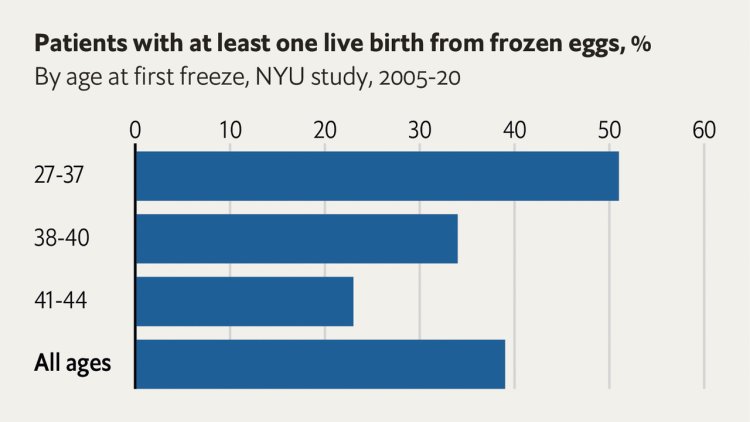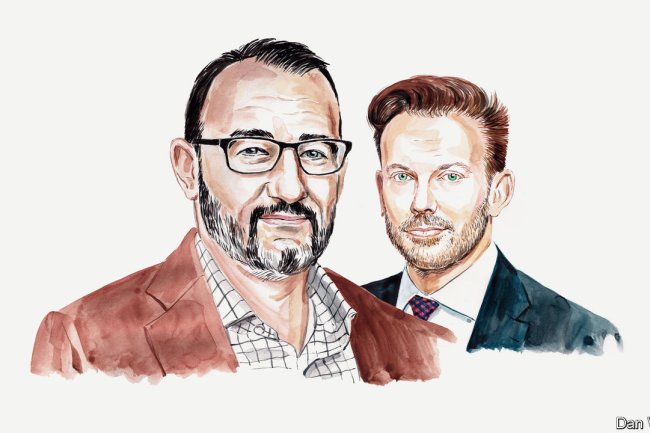How successful is egg-freezing at preserving fertility?
Which countries get the best night’s sleep?Asians sleep later, shorter and less wellA DECADE OR so ago, commercial egg freezing promised to give women a little more control over the incessant ticking of their biological clocks. Age is a determining factor in female fertility. Women are born with as many egg cells as they will ever have and this stock gradually matures, depletes and degrades. So when advances in freezing techniques meant that egg cells (or “oocytes”) could be frozen and later thawed with little or no impact on their quality and ability to be fertilised, interest rocketed. Suddenly, oocyte cryopreservation, or egg freezing, seemed a viable option for extending women’s reproductive years. But has the technology delivered on this promise?Women who wish to preserve their eggs go through the first stages of an in-vitro fertilisation cycle, minus the fertilisation. They take daily hormone injections to boost the number of eggs in their ovaries that are capable of being fertil


Which countries get the best night’s sleep?
Asians sleep later, shorter and less well
A DECADE OR so ago, commercial egg freezing promised to give women a little more control over the incessant ticking of their biological clocks. Age is a determining factor in female fertility. Women are born with as many egg cells as they will ever have and this stock gradually matures, depletes and degrades. So when advances in freezing techniques meant that egg cells (or “oocytes”) could be frozen and later thawed with little or no impact on their quality and ability to be fertilised, interest rocketed. Suddenly, oocyte cryopreservation, or egg freezing, seemed a viable option for extending women’s reproductive years. But has the technology delivered on this promise?
Women who wish to preserve their eggs go through the first stages of an in-vitro fertilisation cycle, minus the fertilisation. They take daily hormone injections to boost the number of eggs in their ovaries that are capable of being fertilised in one menstrual cycle. For a healthy woman under the age of 35, this could mean between ten and 20 eggs. These are removed from the ovaries using a needle that is inserted into the ovaries, then dehydrated and frozen. Over the past decade, the process has been used increasingly not only out of medical necessity (for women undergoing chemotherapy, for example), but also by women who want to have the option of having children later in life. To assess the success rate, our chart below shows the chance of having a baby from frozen eggs, using the largest American study on elective egg-freezing to date.
The study, by researchers at New York University (NYU), observed just 543 patients at one fertility clinic in New York. But their paper stands out because it followed real clinical outcomes for almost two decades, while most other studies are based on mathematical modelling. The researchers found that 39% of the women were able to have at least one baby using the eggs they had frozen, which may have involved multiple attempts over the 15-year period.
Important caveats exist within this data. As egg freezing has only become mainstream within the past decade (it was considered “experimental” in America until 2012), the number of women who have tried to use their frozen eggs is still relatively small. Most research has also not differentiated between elective freezing among healthy women and those freezing for medical purposes, which may skew the results. It will be at least another decade before wider conclusions can be drawn on the procedure’s ability to preserve fertility.
For women who are looking for answers sooner, the current data suggest that two important factors influence the success rate: the age at which you freeze your eggs and the number of eggs you store (not all of which will survive thawing). The NYU study found that women who froze their eggs before the age of 38 had a 51% chance of at least one live birth from them, a figure that rose to 70% if they were able to successfully thaw at least 20 eggs. Meanwhile, the success rate was just 23% for women who began freezing their eggs at 41 years or older, or 33% if at least 10 eggs were thawed (more eggs than that made less of a difference for this age group).

Other studies, including one on elective egg freezing in Spain and an analysis of country-wide data in America, have yielded similar conclusions. Looked at one way, the odds of having a baby from frozen eggs are not especially high; but those chances can look stronger when put in other contexts: a report published in Britain in 2018 showed that, at 18 years old, a woman had a 25% chance of conceiving naturally every month. By 35, it had fallen to 10%. But for women who freeze their eggs, the age at which they use them and the length of time the eggs remain frozen seems to have no impact on their success rate.
There are worries that some of the demand for elective freezing from younger women stems from a belief that it is fail-safe. But starting a family is never a sure thing. What egg freezing offers is a slowing down of the rate at which the odds lengthen against hopeful mothers as they get older. Not a fail-safe, then, but an expansion of their future options.■
Read more on this topic:
• Tinder drove me to freeze my eggs
• Some women need eggs from others, or from their younger selves
• In vitro fertilisation: the most personal technology
• Making babymaking better
What's Your Reaction?













